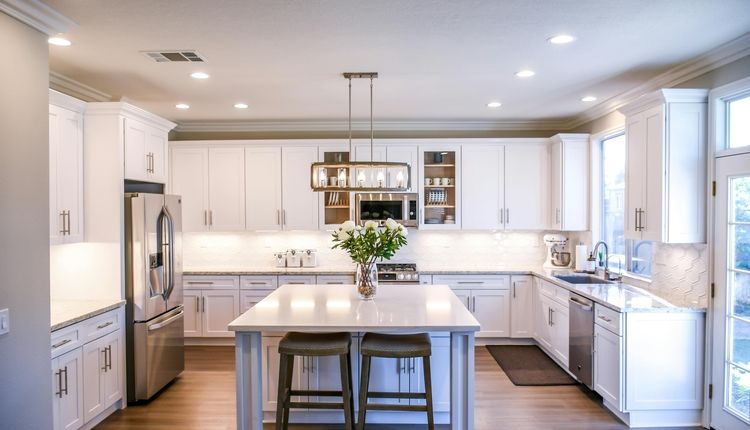Auto Insurance Coverage
Stork Insurance Agency
What is covered by a basic auto policy?
Your auto policy may include six coverages. Each coverage is priced separately.
- Bodily Injury Liability
This coverage applies to injuries that you, the designated driver or policyholder, cause to someone else. You and family members listed on the policy are also covered when driving someone else’s car with their permission.
It’s very important to have enough liability insurance, because if you are involved in a serious accident, you may be sued for a large sum of money. Definitely consider buying more than the state-required minimum to protect assets such as your home and savings.
- Medical Payments or Personal Injury Protection (PIP)
This coverage pays for the treatment of injuries to the driver and passengers of the policyholder's car. At its broadest, PIP can cover medical payments, lost wages and the cost of replacing services normally performed by someone injured in an auto accident. It may also cover funeral costs.
- Property Damage Liability
This coverage pays for damage you (or someone driving the car with your permission) may cause to someone else's property. Usually, this means damage to someone else’s car, but it also includes damage to lamp posts, telephone poles, fences, buildings or other structures your car hit.
- Collision
This coverage pays for damage to your car resulting from a collision with another car, object or as a result of flipping over. It also covers damage caused by potholes. Collision coverage is generally sold with a deductible of $250 to $1,000—the higher your deductible, the lower your premium. Even if you are at fault for the accident, your collision coverage will reimburse you for the costs of repairing your car, minus the deductible. If you're not at fault, your insurance company may try to recover the amount they paid you from the other driver’s insurance company. If they are successful, you'll also be reimbursed for the deductible.
- Comprehensive
This coverage reimburses you for loss due to theft or damage caused by something other than a collision with another car or object, such as fire, falling objects, missiles, explosion, earthquake, windstorm, hail, flood, vandalism, riot, or contact with animals such as birds or deer.
Comprehensive insurance is usually sold with a $100 to $300 deductible, though you may want to opt for a higher deductible as a way of lowering your premium.
Comprehensive insurance will also reimburse you if your windshield is cracked or shattered. Some companies offer glass coverage with or without a deductible.
- Uninsured and Underinsured Motorist Coverage
This coverage will reimburse you, a member of your family, or a designated driver if one of you is hit by an uninsured or hit-and-run driver.
Underinsured motorist coverage comes into play when an at-fault driver has insufficient insurance to pay for your total loss. This coverage will also protect you if you are hit as a pedestrian.
How much coverage do I need?
Almost every state requires you to buy a minimum amount of liability coverage. Chances are that you will need more liability insurance than the state requires because accidents cost more than the minimum limits. If you’re found legally responsible for bills that are more than your insurance covers, you will have to pay the difference out of your own pocket. These costs could wipe you out!
You may want to talk to your agent or company representative about purchasing higher liability limits to reflect your personal needs. You may also consider purchasing an umbrella or excess liability policy. These policies pay when your underlying coverages are exhausted. Typically, these policies cost between $200 and $300 per year for a million dollars in coverage. If you have your homeowners and auto insurance with the same company, check out the cost of coverage with this company first. If you have coverage with different companies, it may be easier to buy it from your auto insurance company.
In addition to liability coverage, consider buying collision and comprehensive coverage. You don't decide how much to buy. Your coverage reflects the market value of your car and the cost of repairing it.
Decide on a deductible—the amount of money you pay on a claim before the insurance company reimburses you. Typically, deductibles are $500 or $1,000; the higher your deductible, the lower your premium.
Will my insurance cover renting a car after an accident?
Many drivers don't think about their insurance coverage until after they have an accident and call their insurance company to file a claim to help pay for car repairs, a rental car and other expenses.
Unfortunately, many insured drivers are surprised to find out that their auto insurance does not automatically cover the cost of a replacement rental car after an accident. Since the average car is in the repair shop for two weeks after an accident, it can cost as much as $500 to rent a replacement car. But, some insured drivers pay little or nothing to rent a car because of an inexpensive but often overlooked option known as rental reimbursement.
Rental reimbursement coverage is available for only $1 or $2 a month with almost every auto insurance policy, but it is bypassed frequently by those who believe they will not have a car accident or those shopping only for the lowest cost premium. The cost of a rental replacement car adds up fast, so even if you don't have an accident for eight or nine years, the coverage pays for itself when you need it most.
Sometimes working out the details of a claim with the auto insurance company can take time. Even if the accident is the other driver's fault, you may have to wait several days or longer to get the other insurance company to agree to pay for a rental car. With your own coverage, there is no waiting.
Courtesy of Insurance Information Institute



